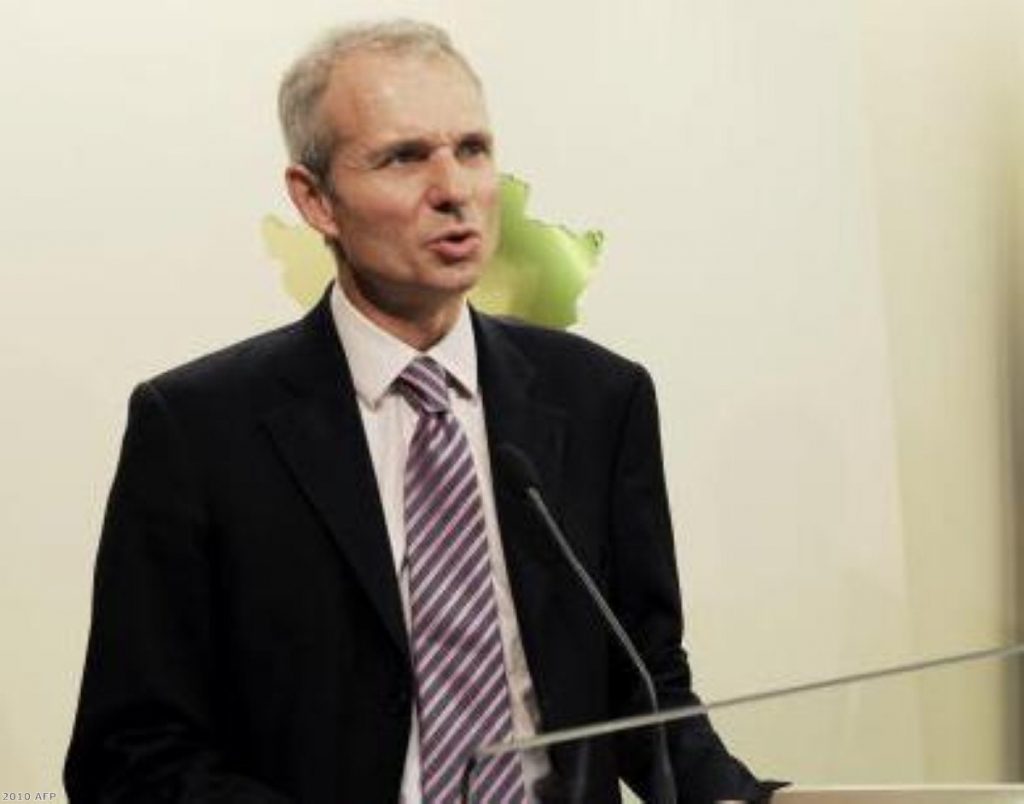Europe minister fears return of Tory divisions
By Alex Stevenson Follow @alex__stevenson
Conservative MPs must avoid a return to past "bitter divisions" over Europe as they debate Britain's involvement in the European Union, David Lidington has told politics.co.uk.
The Europe minister is resisting growing clamour for an in-or-out referendum on Europe from hardline Conservative' eurosceptics.
A non-binding Commons vote, the first of its kind since 1975, could take place by the end of the year after a public petition calling for a referendum attracted over 100,000 signatures.


The European question could not "simply be boiled down to a binary choice of in or out", Mr Lidington said. He warned that dissent over the EU could hit the Tory party at the polls.
"No-one who lived through the bitter divisions of the late 90s and early 2000s when Conservative MPs just tore strips out of each other on live TV want to go back to that again," the Europe minister told politics.co.uk.
"That did the party huge damage in the eyes of the public."
Prime minister David Cameron made clear he opposed an in-out referendum at the weekend.
That puts the government on a collision course with Tory MPs and party members frustrated with the coalition's unwillingness to address European issues.
Among them are the authors of The Blue Book, a collection of essays seeking to focus debate on the Tories' 2015 manifesto, who held a launch event in Manchester yesterday. John Baron's chapter on foreign policy calls on the Conservative party to "re-examine the costs and benefits of EU involvement".
Mr Baron told politics.co.uk he wanted Tories to ask more questions about whether ministers should seek to "repatriate" powers back to Britain or whether the UK should be "contributing as much as we are" to the EU's budget.
His views clash with those of Mr Lidington, who argued that the European Union Act requiring a referendum for all future treaty alterations was already influencing thinking on the continent.
The Europe minister said he wanted to see the issues debated in a "mature fashion" where "creative ideas" are put forward constructively.
"I am in favour of there being a constructive debate within the Conservative party about the future of the United Kingdom's relationship with and membership of the European Union," he added, before pressing: "I think it's important we conduct that conversation in an atmosphere of mutual respect."
Yesterday chancellor George Osborne revived Tory opposition to the euro in his speech to delegates in Manchester.
But at the weekend Mr Cameron made clear that leaving the EU would be the "wrong answer for Britain".
"What most people want in this country is not actually to leave the EU, but to reform the EU and make sure that the balance of powers between a country like Britain and Europe is better," the PM said.
Mr Lidington reflected that view as he pointed out that the growing membership and diversity of the EU made it "increasingly wrong and counter-productive to keep looking for harmonisation rather than flexibility".
"We have to be in the European Union so we can influence it and help shape what it does, but it's sometimes meddling in things that ought not to be decided at the level of Brussels," he said.
"Most Conservatives would say the EU has often intruded into things that sensibly ought to be left to national governments and parliaments to decide."
Mr Lidington claimed most Conservatives accepted that Britain benefits from the European single market, however, and said they wanted the UK to "cooperate closely with our European neighbours wherever we can".
The trade deal with China negotiated by the EU and its work towards a strong sanctions package against Iran were highlighted as examples of effective EU cooperation.












